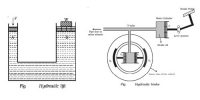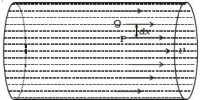The uncertainty in the measurement of a physical quantity is called error. It is the difference between the true value and the measured value of the physical ‘quantity. Errors may be classified into many categories.
(i) Constant errors: It is the same error repeated every time in a series of observations. Constant error is due to faulty calibration of the scale in the measuring instrument. In order to minimise constant error, measurements are made by different possible methods and the mean value so obtained is regarded as the true value.
(ii) Systematic errors: These are errors which occur due to a certain pattern or system. These errors can be minimized by identifying the source of error. Instrumental errors, personal errors due to individual traits and errors due to external sources are some of the systematic errors.
(iii) Gross errors: Gross errors arise due to one or more than one of the following reasons.
(1) Improper setting of the instrument.
(2) Wrong recordings of the observation.
(3) Not taking into account sources of error and precautions.
(4) Usage of wrong values in the calculation.
Gross mats can be minimized only if the observer is very careful in his observations and sincere in his approach.












